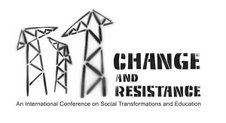Michael Hornsby
University of Southampton, UK
In many parts of Europe, minority and minoritised languages are currently experiencing higher profiles than ever before. At the same time, the use of these languages has spread from traditional strongholds (where, in many cases, it is in sharp decline) to use in domains never previously imagined. This paper aims to explore the nature of these transformations and the conditions which explain them. These can be attributed to the present period of globalisation and 'High Modernity' (Giddens, 1991) which 'seemingly paradoxically, produces both fragmentation and uniformization' (Heller, 1999: 33). The resulting struggles include treating minority languages as commodities, rather than an index of identity and the use of 'authenticity' (Gal & Woolard, 2001) in exercising control over how these languages are defined. Language commodification and the deliberate creation of sites are exemplified in one minority language situation, that of Breton, either in a symbolic way or in the constituting of linguistic Communities of Practice (CofPs). In this paper, I argue that the creation of Breton-language sites is a very different phenomenon from the much more visible commodification of the language but, being a grass-roots initiative, is more likely to hold the key for the possible long-term survival of the language. With the current higher visibility of the Breton language on the linguistic landscape, attitudes among young Breton speakers to its symbolic use is explored, focussing on their simultaneous appreciation and rejection of such changes. This situation is mirrored in many other minoritised language settings.

No comments:
Post a Comment